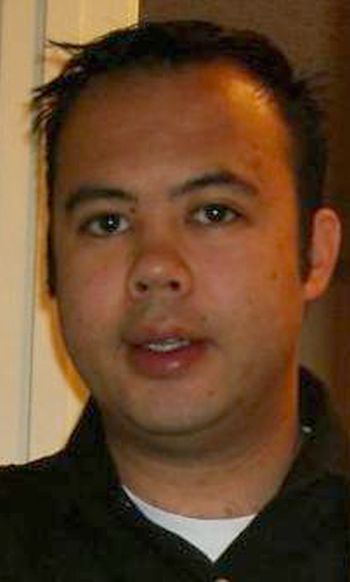|
After Neruda
Suddenly, everything is a woman.
The way a street lamp curves
at the edge of a dark street,
or an orchid blooms in an empty room,
patient for destruction, beautiful as a white slip
floating in the wrecking ball's wake.
You hear the sea in everything,
its great bell-like waves sounding
deep in your anxious sleep, moving invisibly
by your ears with each passing car.
Light takes on a strange quality,
like the once-familiar scent of women
you have known or the texture of old bus tokens,
worn smooth in pockets, no longer in currency.
You want to make love
in a language you do not know,
or write prayers between the lines
of old dollar bills given to strangers.
You caress the backs of pews,
pray to unknown gods you have witnessed
from your window, their half-closed eyes
flashing in the distance, like lighthouses in a storm.
In the kitchen, you surround yourself
with apples, lemons, and a tomato.
Arranging them in silence, you can sense
her presence just beneath the skin.
When you hold the tomato to your ear
you can hear her breathing in ragged sighs,
like a ship heaving against the tide.
When you press it to your lips,
you can still taste the unwashed salt of sorrow.
Outside Plato's Republic,
the Last Poets Wait for Departure
Hong Kong International Airport, 1989
…the poet himself is a China
~ Liu Hongbin, Chinese poet-in-exile
1.
This one, tired from the long journey,
leans back in his airport chair. The stain of travel,
tattoo of sweat and the lips of sleeping women
pressed unknowingly to his shoulders mid-flight.
How their faces turned inward the way
a cat's pink tongue fills a wound
with an instinct for sweetness and iron.
Grounded, he is a castoff map, a blankness
scarcely smudged by the sounding rings
of impinging continents. Land he has only seen
through mists. Has only witnessed in the fine print
at the bottom of passports and visas, the insides of cans,
the raised edges of boxes made somewhere else.
Somewhere forgettable where the sick and insane
piece each plastic toy together, immune to pleasure.
2.
In the corner, against the bullet-proof glass,
another raises his arms high above his head,
as if in prayer, or uttering a name to be nailed
like a piton into a hardened cliff face. This unbending
yearning. These barren limbs sprouting from a man
worn smooth by wind and water. How they stretch,
reaching for a heaven of silence, some dim realm
of rope and boards. A bridge. A strict metered offering.
Even. Still. The emptiness of fired clay. A scale.
A measure of wanting. Each hand a receptacle for ghosts.
3.
The last one traces the outbound curve
of an O that returns to its origin again,
stopping once before moving on. She thinks
of round coins punched through with squares,
the angle of characters lifted in relief, the thin
red string that holds them together around her neck.
O, she opens her mouth in a question wide enough
to hold a world the shape of her lips. O is the letter
she leaves at the gate for her lover, for the one
who is always nowhere, too late and too soon.
Considering Photography
Astoria, Oregon
Outside Astoria in a borrowed car, I drive the long road
up the coast, past blackened timbers rising
from old wharves consumed by the sea. A mystery of wood.
A canticle of wind sung at the fencepost by the crows.
Even if I try, the brochures bent double tell me nothing
of the grave-heavy shore, speak only of the great
rusted frames of ships with Norwegian names. Holes
in their sides where the wind sounds, and a man can walk out
to the sea perfectly framed. The shutter closes.
The Finns who built this place now sink back into their beds,
drown their rats in beer, their sorrow in the storms their fathers
knew by name, but now sleep instead, buried with the fish
they hauled onto the blood-ready decks. Ghosts all,
even the fish are gone.
Absent the gulls, only a white crust of salt, a smooth piece
of rose-colored glass reflecting sun, the image of man
is more like an eye turned to a small hole in the sky,
the corner of a billboard peeling free, or a lighthouse
raised on the edge of the known world.
Lewis and Clark saw none of this when they waded in,
moccasins wet and worn from too many miles. They fell down
sick and weak, turned down the fire, watched the stars drown
one by one in the open sea.
When I pull into the next town,
even the buildings have turned gray.
Burials
Pulling through Montana in the snow
we cling to the tail lights of the last car
blurring back into the darkness.
"Like the inside of a coffin," my father says,
as if knowing the exact shade the dead see,
lying stiff, frozen eyes peering up through closed lids—
he shifts in his seat, watches the road disappear,
thinks again of dying and the burials we've seen,
his father's simple reduction to ashes.
How small the urn, how light, for a man
that stood 6'3", carried a boy on his shoulders,
lived on trains as a youth, picked apples as a man.
This past summer, watching him thin
to disappearing, blurring out lines between lives,
my father trying to return pieces, fragments, time,
the body burning, the dark smells of crematoriums,
funeral homes, and pale faced lawyers.
Something merges, ends, and begins.
My father placing the ashes back into the air,
offerings to the skies, to the seas,
unaware how Buddhist he is at this moment,
how the faint sound of bagpipes echoes,
how the ashes fall catching light,
reflecting something back into the silence,
the dark birth of the sun coming into view.
|

|